Answer to Solve the given initial value problems a) (e^xy) \,dx (2xye^y)\,dy = 0;(e y1)2 e−dx (e x1)3 e− dy =0 6 ¡ y −yx2 ¢ dy dx =(y 1)2 7 dy dx =sinx ¡ cos2y −cos2 y ¢ 8 x p 1−y2 dx = dy 9 (e xe−) dy dx = y2 (21) ds dr = ks, 1 s ds = kdr, Z 1 s ds = k Z dr, lns = krc 1, s = ekrc 1 s = ekrec 1 = c 2ekr, (c 2 = ec 1), s = ±c 2ekr, s = cekr, (c = ±c 2) (22) dp dt = p−p2, 1 p−p2 dp = dt, Z 1 p−p2 dp = Z dt, Z 1 p−p2 dpAsk a Question Solve the differential equation 3e^x tan y dx (2 e^x)sec^2 y dy = 0, given that when x = 0, y = pi/4 ← Prev Question Next Question → 1 vote 50k views

E X Y Dx E Y X Dy 0 Youtube
(e^x+y)dx+(2+x+ye^y)dy=0
(e^x+y)dx+(2+x+ye^y)dy=0-Differentiate using the Power Rule which states that d d x x n d d x x n is n x n − 1 n x n 1 where n = 2 n = 2 Multiply 2 2 by − 1 1 Reform the equation by setting the left side equal to the right side Reorder factors in −2e−x2 x 2 e x 2 x Replace y' y ′ with dy dx d y d x求二重积分「1 「1」0 dx」x sinx/xdy手机打不出积分符号,就是x的积分区间为0至1,y的积分区间为x至1, 1年前 3个回答 二重积分的计算∫dx∫K(6xy)dy=1 ,其中x的积分上限是2下限是0 y的积分上限时4下限是2




How To Solve Show The Differential Equations Are Exact 2xy Y Tany Dx X 2 X Tany 2 Secy 2 2 Dy 0 Te Tx 2x Dx Dt Xe Xt 0 Quora
Originally Answered How can I solve (e^(xy) ye^y) dx (xe^(y) 1) dy=0?Answer to Are the following equations exact?Get answer Solve e^xsqrt(1y^2)dxy,x dy=0 Apne doubts clear karein ab Whatsapp par bhi Try it now
X y2 x dx x2 y3 y dy= 0 enemosT M(x;y) = x y2 xy N(x;y) = x 2 y3 y Entonces M y= 2y 3xy N x= 2x y3;Solve your math problems using our free math solver with stepbystep solutions Our math solver supports basic math, prealgebra, algebra, trigonometry, calculus and moreUse the distributive property to multiply x 2 y 3 d x d by y To find the opposite of x^ {2}dy^ {4}xdy, find the opposite of each term To find the opposite of x 2 d y 4 x d y, find the opposite of each term Combine ydx and xdy to get 2ydx Combine − y d x and − x d y to get − 2 y d x
Simple and best practice solution for (1y*x^2)dxx^2*(yx)dy=0 equation Check how easy it is, and learn it for the future Our solution is simple, and easy to understand, so don`t hesitate to use it as a solution of your homework If it's not what You are looking for type in the equation solver your own equation and let us solve it(e x y) dx (2 x ye y) dy = 0, y(0) = 1 Students also viewed these Mathematics questions Solve the given initialvalue problem dy/dx = cos (x y), y(0) =?/4 View Answer Solve the given initialvalue problem y 1/2 dy/dx y 3/2 = 1, y(0) = 4 View Answer Solve the given initialvalue problem xy 2 dy/dx = y 3 x 3 , y(1) = 2 View Answer Solve the given initialvalue problem (x 2For the homogeneous differential equation (x^4 y^4)dx 2yx^3dy=0 use the standard substitution y =xV(x) The equation becomes (1 V^4)dx 2V(Vdx xdV)=0 Collecting terms obtain ((1 V^2)^2)dx = 2xVdV Separating gives 2VdV/(V^2 1)^2 =




Please Determine Which Equations Are Exact And Solve Them Exact Equation Nice X Y Homeworklib



Http 1 160 97 198 8080 Xmlui Bitstream Handle 2 2 chapter 1 11 Pdf Sequence 2
e y dx (xe y – 2y)dy = 0 (e y dx xe y dy) = 2ydy d(xe y) = 2ydy Integrating, we get (xe y) = (y 2 /2) c which is the required solution ← Prev Question Next Question → Related questions 0 votes 1 answer The solution of ye^x/ydx (xe^x/y y^3)dy = 0 is (A) y^2/2 e^x/y = k asked in Differential equations by AmanYadav (556k points) differential Solve 3e x tan y dx (1 – e x) sec 2 y dy = 0 differential equations; 22 (e^xy)dx(2xye^y)dy=0, y(0)=1 Ecuaciones exactas Alexander Estrada




Ye X Ydx Xe X Y Y 2 Dy Maths Questions
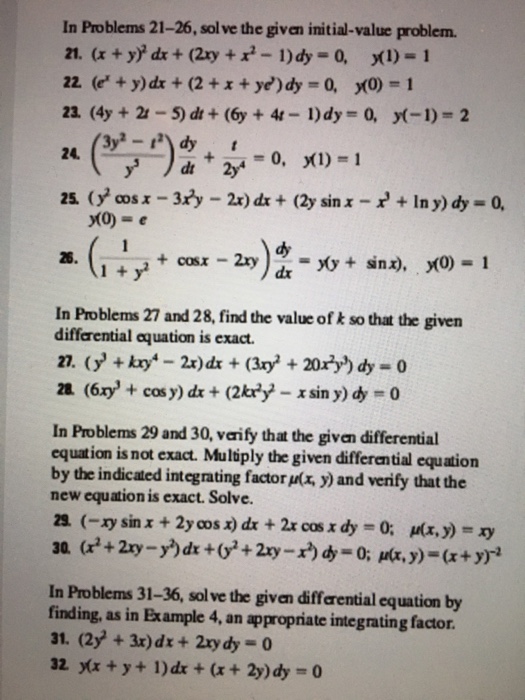



In Solve The Given Initial Value Problem X Y 2 Chegg Com
Simple and best practice solution for (xy)dx(xy)dy=0 equation Check how easy it is, and learn it for the future Our solution is simple, and easy to understand, so don`t hesitate to use it as a solution of your homeworkSimple and best practice solution for (x(y^2)x)dx(y(x^2)y)dy=0 equation Check how easy it is, and learn it for the future Our solution is simple, and easy to understand, so don`t hesitate to use it as a solution of your homework If it's not what You are looking for type in the equation solver your own equation and let us solve it The solution of y(2x^2y e^x)dx – (e^x y^3)dy = 0, if y(0) = 1 is ← Prev Question Next Question → 0 votes 19k views asked in Mathematics by RiteshBharti (538k points) The solution of y(2x 2 y e x)dx – (e x y 3)dy = 0, if y(0) = 1 is (a) 6e x 4x 3 y – 3y 3 – 3y = 0 (b) y 2 e x – 4xy – 3x 3 – 3 = 0 (c) x 2 e x – 4x 3 y – 3xy 3 – 3x = 0 (d) None



How To Solve The Differential Equation Xy Dx X 2 2y 2 Dy 0 Quora




Solving Separable Differential Equations Calculus Socratic
Solve the differential equation 3ex tan y dx (2 ex)sec2 y dy = 0, given that when x = 0, y = pi/4 Login Remember Register;ডিফারাল সমীকরণ সমাধান `3e^x tan y dx(1e^x)sec^2 y dy=0` হয় JEE Main 21 4th session starts from Aug 26, application last date extendedEcuacion diferencial mediante solución por sustitución




Implicit Differentiation Advanced Example Video Khan Academy
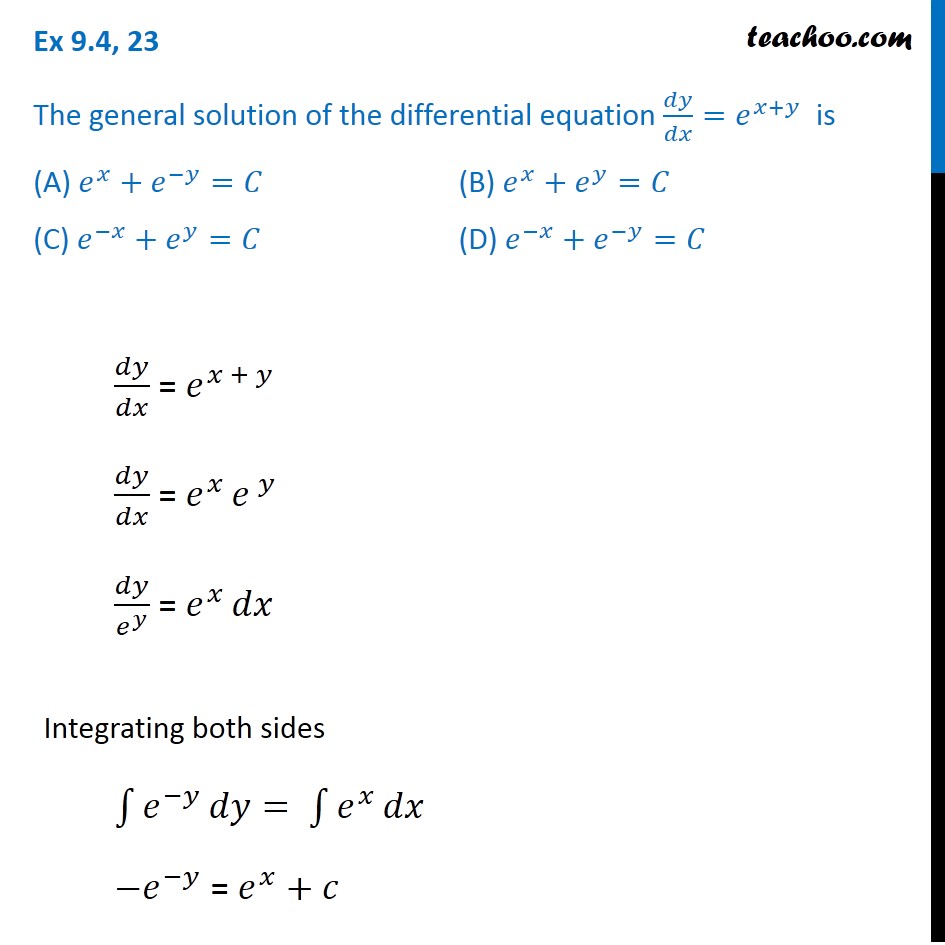



Ex 9 4 23 General Solution Of Dy Dx E X Y Is A E X E Y C
Solve your math problems using our free math solver with stepbystep solutions Our math solver supports basic math, prealgebra, algebra, trigonometry, calculus and moreClick here👆to get an answer to your question ️ The solution of the differential equation, e^x(x 1)dx (ye^y xe^x)dy = 0 with initial condition f(0) = 0 , isECUACIONES HOMOG´ENEAS Soluci´on (x ye y x ) dx − xe y x dy = 0 donde homog´enea de orden 1 M(x, y) = x ye y x y homog´enea de orden 1 N(x, y) = −xe y x La sustituci´on m´as sencilla es y = ux, por tanto dy = u dx x du Sustituyendo en la ED (x uxe ux x ) dx − xe ux x (u dx x du) = 0 o sea que x dx − x2 eu du = 0 luego x dx = x2 eu du, separando variables y




First Order Differential Equations Chapter 2 Ch2 2 Contents 2 1 Solution Curves Without A Solution 2 1 Solution Curves Without A Solution 2 2 Separable Ppt Download




Solution Of The Differential Equation 1 E X Y Dx E X Y 1 X
Question Solve The IVP (e^x y)dx (2xye^y)dy = 0, Y(0) = 1 Detailed Steps And Explanation Very Much Appreciated Detailed Steps And Explanation VerySolve your math problems using our free math solver with stepbystep solutions Our math solver supports basic math, prealgebra, algebra, trigonometry, calculus and more\quad y(0)=1 b) (y^2\cos x 3x^2y2x)\,dx (2y\sin




Ex 9 6 11 Find General Solution Y Dx X Y2 Dy 0



What Is The Solution Of The Differential Equation Dy Dx 1 E X Y Quora
Solution for (ye* y)dx (e* x)dy = 0 , y(0) = 1, başlangıç değer probleminin çözümü aşağıdakilerden hangisidir?To ask Unlimited Maths doubts download Doubtnut from https//googl/9WZjCW The solution of the differential equation, `e^x(x 1)dx (ye^y xe^x)dy = 0` wiThe solution of `y(2xye^x)dxe^xdy=0` is (A) `x^2ye^(x)=C` (B) `xy^2e^(x)=C` `x/ye^(x)/x^2=C` (D) `x^2e^x/y=C`



Http Fractal Math Unr Edu Ejolson 285 15 Extraprob Pdf
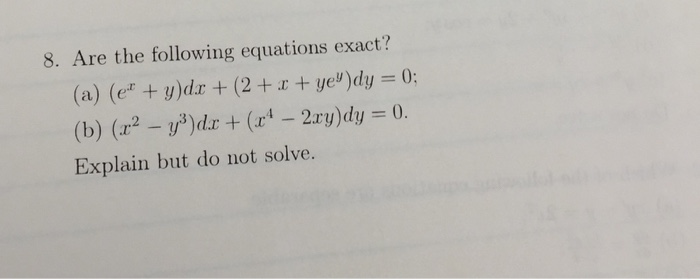



Are The Following Equations Exact E X Y Dx 2 Chegg Com
Simple and best practice solution for (x^2xyy^2)dx(xy)dy=0 equation Check how easy it is, and learn it for the future Our solution is simple, and easy to understand, so don`t hesitate to use it as a solution of your homework If it's not what You are looking for type in the equation solver your own equation and let us solve itClick here👆to get an answer to your question ️ Solution of the differential equation y(2xy e^x) dx e^x dy = 0 is Join / Login > 12th > Maths > Differential Equations > Solving Linear Differential Equation > Solution of the differentia maths Solution of the differential equation y (2 x y e x) d x − e x d y = 0 is Medium Answer y (2 x y e x) d x − e x d y = 0 yY = ex hiçbiri y = el y =
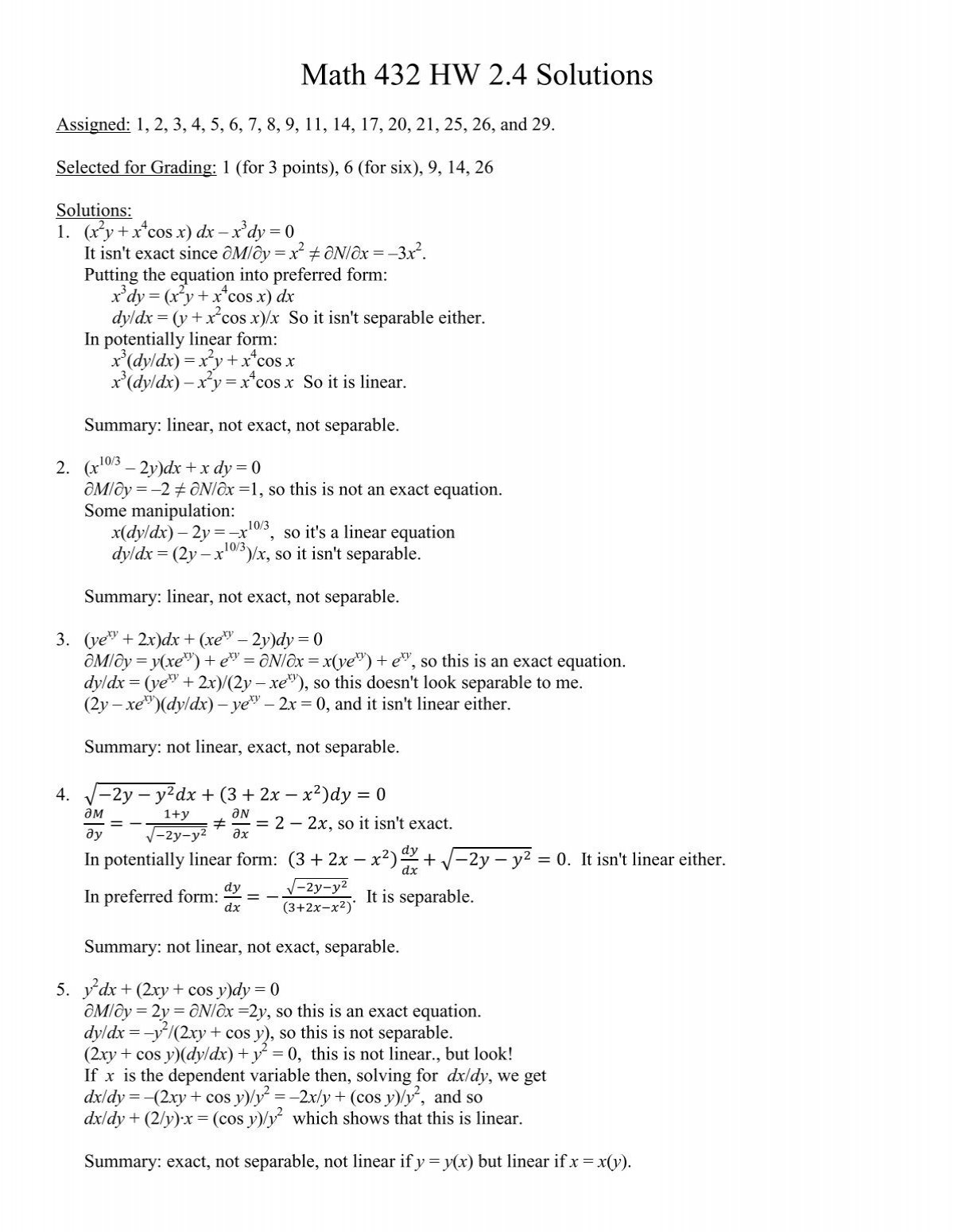



Math 432 Hw 2 4 Solutions Frostburg
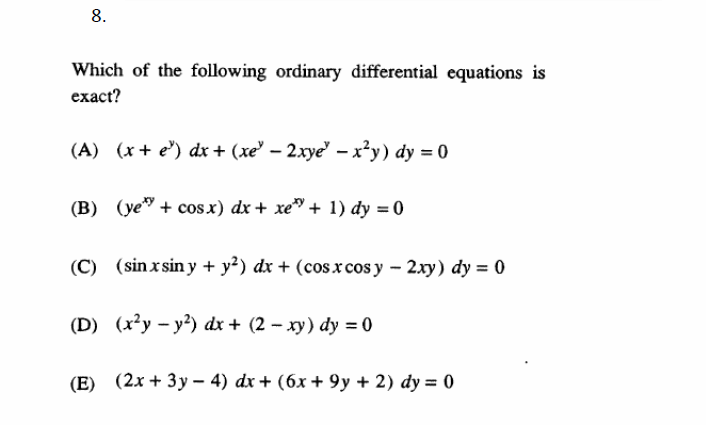



Which Of The Following Ordinary Differential Chegg Com
Click here👆to get an answer to your question ️ Solution of (xy^2 x)dx (yx^2 y)dy = 0Share It On Facebook Twitter Email 1 Answer 1 voteSimple and best practice solution for (x^2y^2)dx(xy)dy=0 equation Check how easy it is, and learn it for the future Our solution is simple, and easy to understand, so don`t hesitate to use it as a solution of your homework




1 E Xy Xe Xy Dx Xe X 2 Dy 0 Exact Differential Equation Shorter Solution Youtube




Differential Equations Solved Examples 17
Answered Solved Solve differential equation dy/dx= x/(ye^(xy^2)) The integrating factor method, which was an effective method for solving firstorder differential equations, is not a viable approach for solving secoA) \ \ (e^x y)dx( 2 x ye^y)dy=0 \\ b) \ \ (x^2y^3)dx (x^42xy)dy=0 By signing up, you'llDx 2 The first and second derivatives of y with respect to x, in the Leibniz notation Gottfried Wilhelm von Leibniz (1646–1716), German philosopher, mathematician, and namesake of this widely used mathematical notation in calculus In calculus, Leibniz's notation, named in honor of the 17thcentury German philosopher and mathematician Gottfried Wilhelm Leibniz, uses the symbols dx




Xexydxyexydy0 Ysqrt X2c1y Sqr See How To Solve It At Qanda




The Solution Of The Differential Equation E X X 1 Dx Ye Y Xe X Dy 0 With Initial Cond Youtube
*Thanks for the A* First off, notice that this differential equation is of the form , and notice that this differential equation, in current form, is not exact We can verify this by taking the mixed partial derivatives, with , and These two are not equal, hence not currently exact I want to turn this(b) 2 x y dx ( y 2 x 2) dy = 0 Here, M = 2 x y, M y = 2x, N = y 2 x 2, and N x = 2 xNow, ( N x M y) / M = ( 2 x 2 x ) / ( 2 x y) = 2 / yThus, μ = exp ( ∫ 2 dy / y ) = y2 is an integrating factor The transformed equation is ( 2 x / y ) dx ( 1 x 2 y2) dy = 0 Let m = 2 x / y, and n = 1 x 2 y2Then, m y = 2 x y2 = n x, and the new differential equation is exact Example 17 Show that the differential equation 2𝑦𝑒^(𝑥/𝑦) 𝑑𝑥(𝑦−2𝑥𝑒^(𝑥/𝑦) )𝑑𝑦=0 is homogeneous and find its particular solution , given that, 𝑥=0 when 𝑦=1 2𝑦𝑒^(𝑥/𝑦) 𝑑𝑥(𝑦−2𝑥𝑒^(𝑥/𝑦) )𝑑𝑦 = 0 Step 1 Find 𝑑𝑥/𝑑𝑦
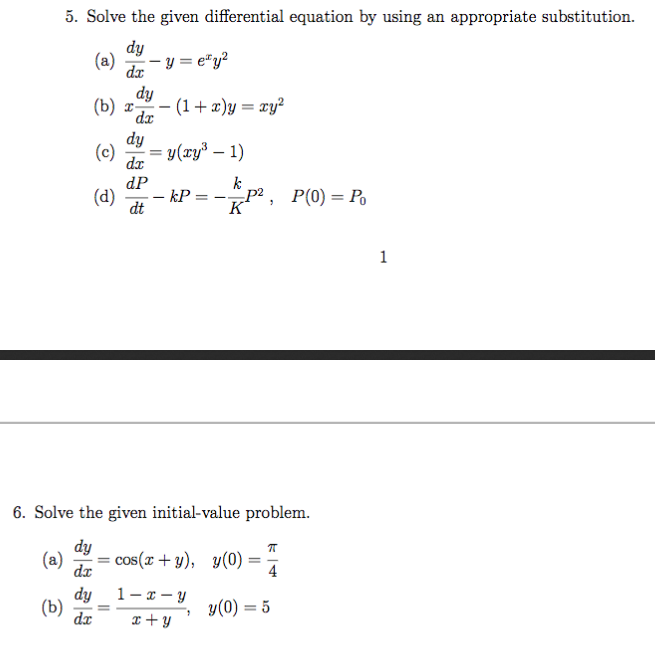



Solve The Given Differential Equation By Using An Chegg Com




How To Solve Show The Differential Equations Are Exact 2xy Y Tany Dx X 2 X Tany 2 Secy 2 2 Dy 0 Te Tx 2x Dx Dt Xe Xt 0 Quora
Answer to Solve 2xy dx (x^2 1) dy = 0 By signing up, you'll get thousands of stepbystep solutions to your homework questions You can also Ex 96, 11 For each of the differential equation find the general solution 𝑦 𝑑𝑥 𝑥− 𝑦2𝑑𝑦=0 Step 1 Put in form 𝑑𝑦𝑑𝑥 Py = Q or 𝑑𝑥𝑑𝑦 P1 x = Q1, y dx (x − y2) dy = 0 y dx = − (x − y2)dy 𝑑𝑦𝑑𝑥 = −𝑦𝑥− 𝑦2 This is not of the form 𝑑𝑦𝑑𝑥 Py = Q ∴ we findSimplifying dy = 0 The solution to this equation could not be determined This subproblem is being ignored because a solution could not be determined Subproblem 2 Set the factor '(x y)' equal to zero and attempt to solve Simplifying x y = 0 Solving x y = 0 Move all terms containing d to the left, all other terms to the right Add '1x




How Accurately Can You 1 Predict Y From



How To Solve Math E X Y Ye Y Dx Xe Y 1 Dy 0 Math Quora
Share It On Facebook Twitter Email 1 Answer 1 vote answered by Jay01 (395k points) selected by Abhilasha01 Best answer The given differential equation is On Integrating, we get which is the required solution of the given differential equation ← PrevDe modo que la ecuación es exacta Buscamos una solución del tipo f(x;y) = C, con f x= My f y= N Integramos Mpara determinar f f(x;y) = Z f x(x;y)dx= Z M(x;y)dx= 8 1 ECUAC DIFERENCIALES ORDINARIAS = Z x y2 x dx= x2 2y2 x2 2 g(y) Queda determinar quién es g(y) Como f y(x;y) = N(x*Thanks for the A* First off, notice that this differential equation is of the form mathM(x,y)dxN(x,y)dy=0/math, and notice that this differential equation, in current form, is not exact We can verify this by taking the mixed partial deriv



What Is The Solution Of X Y Dx Dy 0 Quora




Find Particular Solution Of Y E Y Dx Show That X Y Dy X 2y
Solve the differential equation (x^2 4xy 2y^2)dx (y^2 4xy 2x^2)dy = 0 ← Prev Question Next Question → 0 votes 149k views asked in Differential equations by AmanYadav (556k points) Solve the differential equation (x 2 4xy 2y 2)dx (y 2 4xy 2x 2)dy = 0 differential equations;*Thanks for the A* First off, notice that this differential equation is of the form M(x,y)dxN(x,y)dy=0, and notice that this differential equation, in current form, is not exactARLEY PARRA AUNADPrograma Ingenieria IndustrialCurso Ecuaciones DiferencialesGrupo _64Presentado a Edson Daniel Benitez Rodriguez
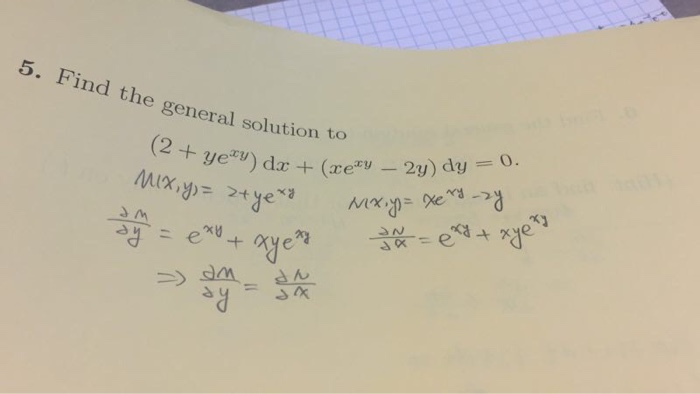



Find The General Solution To 2 Ye Xy Dx Xe Xy Chegg Com




Iit Jee Differential Equations Solve Y E X Y Dx X E X Y Y 2 Dy Y 0 Dot Youtube



Http Www2 Johnabbott Qc Ca Math Gr Cal C1ns C1 Impdf Pdf




The Solution Of The Differential Equation Dy Dx E X Y X 2e Y Is Youtube



Solved Below Is A Write Whether The Differential Equations Given In Ordered Items Are Exact Differential Equations According To The Results You Fo Course Hero




The General Solution Of The Differential Equation E X Dy Y




1 2e X Y Dx 2e X Y 1 X Y Dy 0 Youtube




Homogeneous Differential Equation X Y Dx Xdy 0 Youtube




Exact Differential Equation Tan X Sin X Sin Y Dx Cos X Cos Y Dy 0 Youtube
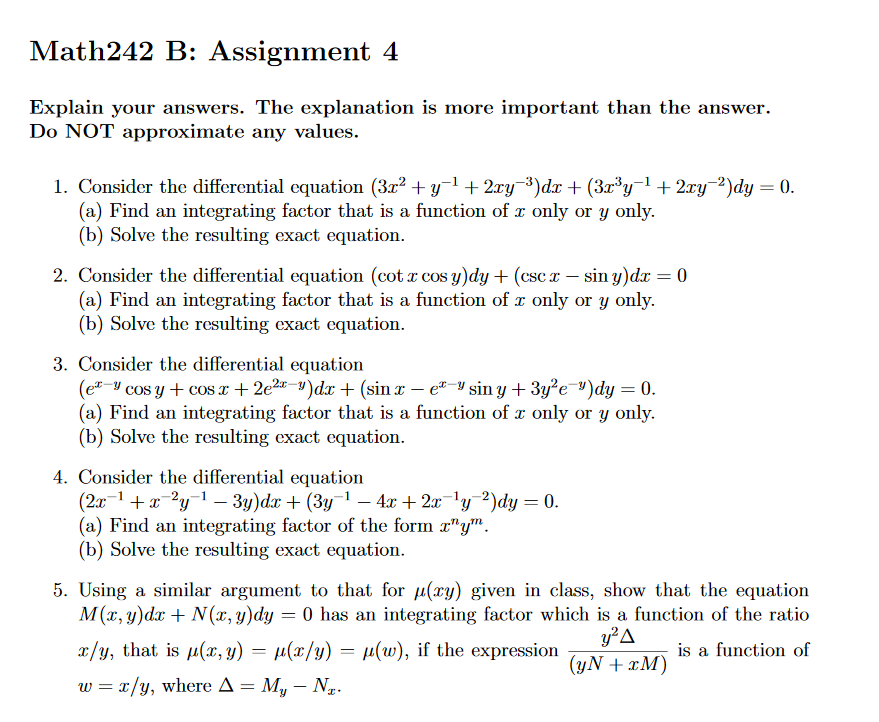



Q 3 Find The Integrating Factor And Solve The Exact Solution Consider The Differential Equation E X Y Cosy Cosx 2e 2x Y Dx Sinx E X Y Siny 3y 2e Y Dy Q 5 Prove Socratic




E X Y Dx E Y X Dy 0 Youtube
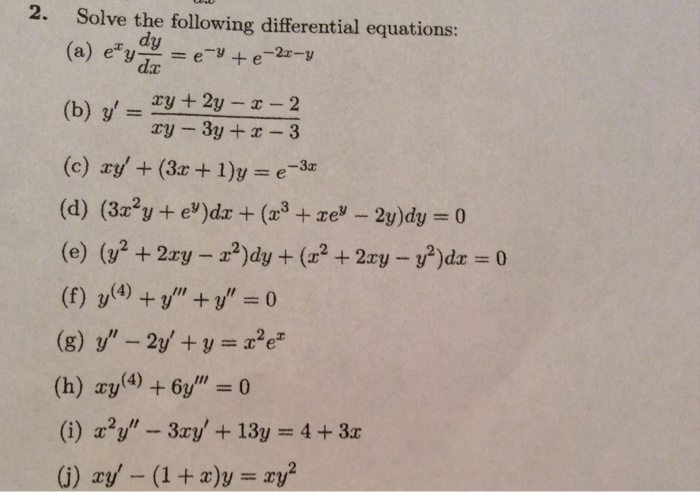



Solve The Following Differential Equation E Xy Dy Dx Chegg Com




Example 17 Show 2y E X Y Dx Y 2x Ex Y Dy 0 Particular
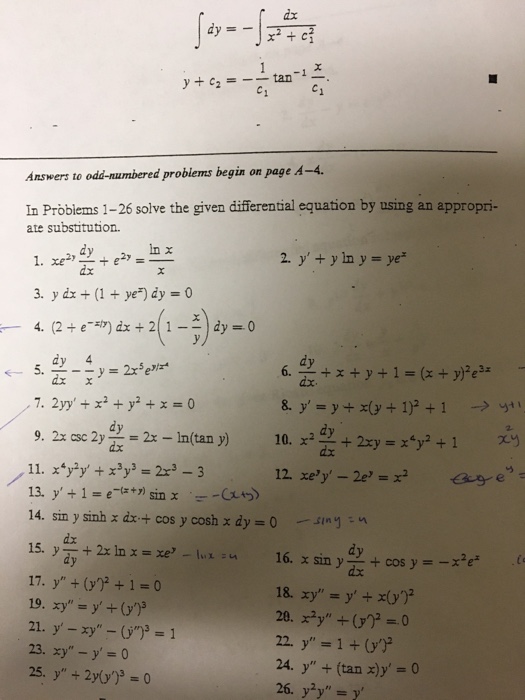



In Problems 1 26 Solve The Given Differential Chegg Com
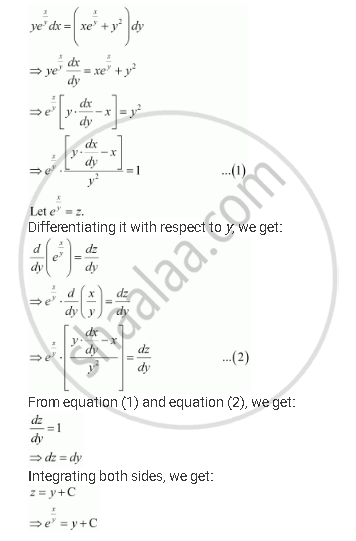



Solve The Differential Equation Ye X Y Dx Xe X Y Y 2 Dy Y 0 Mathematics Shaalaa Com



The Solution Of Y 2x 2y E X Dx E X Y 3 Dy 0 If Y 0 1 Is Sarthaks Econnect Largest Online Education Community
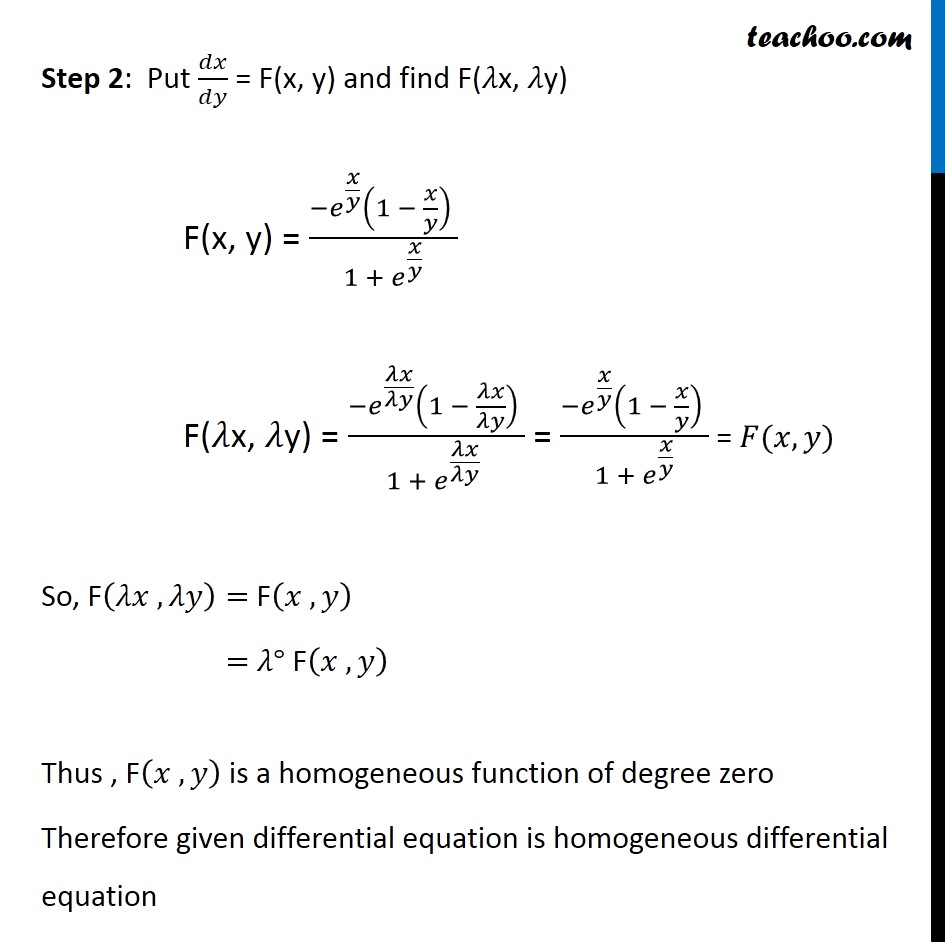



Ex 9 5 10 Show Homogeneous 1 Ex Y Dx E X Y 1 X Y



How To Solve The Differential Equation X X Y Dy Y 2dx 0 Quora




Example 17 Show 2y E X Y Dx Y 2x Ex Y Dy 0 Particular




Dy Dx 2xy F X Y 0 2 Novocom Top



Www Tau Ac Il Levant Ode Solution 6 Pdf



Www Uplifteducation Org Cms Lib Tx Centricity Domain 273 Diff eq sol Pdf




Solve The Following Initial Value Problems E X Chegg Com




Misc 10 Solve Y Ex Y Dx Ex Y Y2 Dy Chapter 9 Class 12
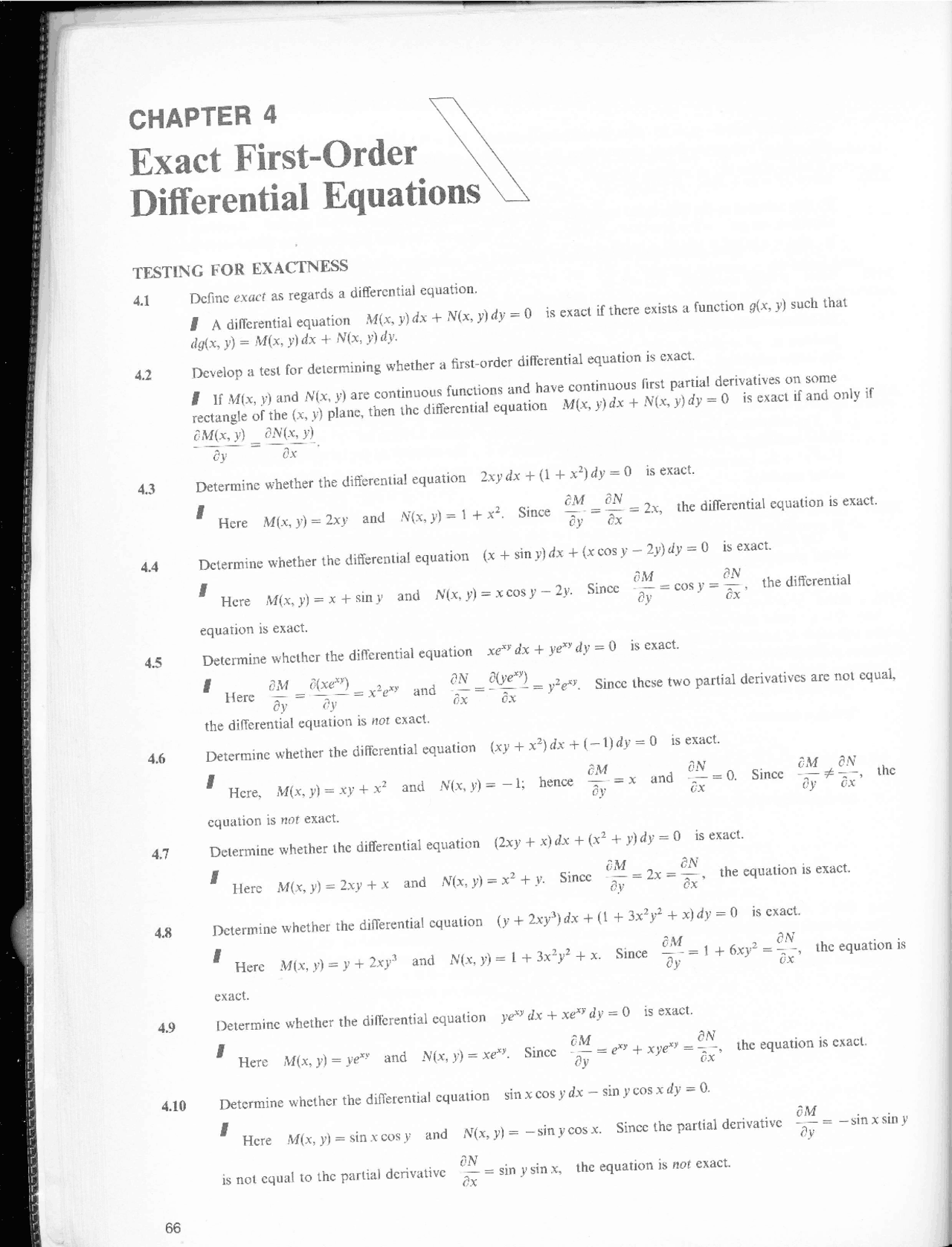



Chapter 04 2500 Solved Problems In Differential Equations Docsity



How Do L Solve The Initial Value Problem X 2 Y 2 Dy Dx Xy Y 1 2 Quora



How To Solve This Exact Equation 2xe Y E X Dx X 2 1 E Y Dy 0 Quora




The Solution Of Y 2xy E X Dx E Xdy 0 Is A X 2 Ye X C B Xy 2 E X C C Youtube




X Y Dx Dy 0 Novocom Top



If X Y E X Y What Is Dy Dx Quora




Example 17 Show 2y E X Y Dx Y 2x Ex Y Dy 0 Particular



What Is The General Solution Of The Ydx Xy 2 X Y Dy 0 Quora
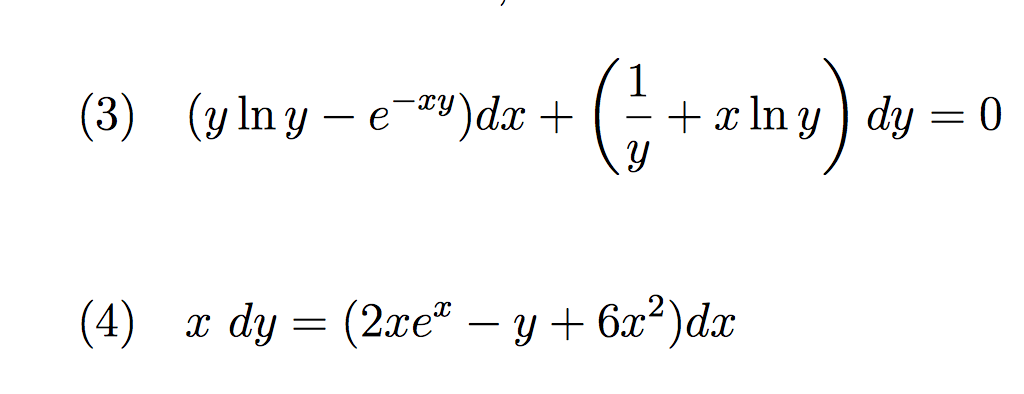



Determine Whether The Given Equation Is Exact If Chegg Com
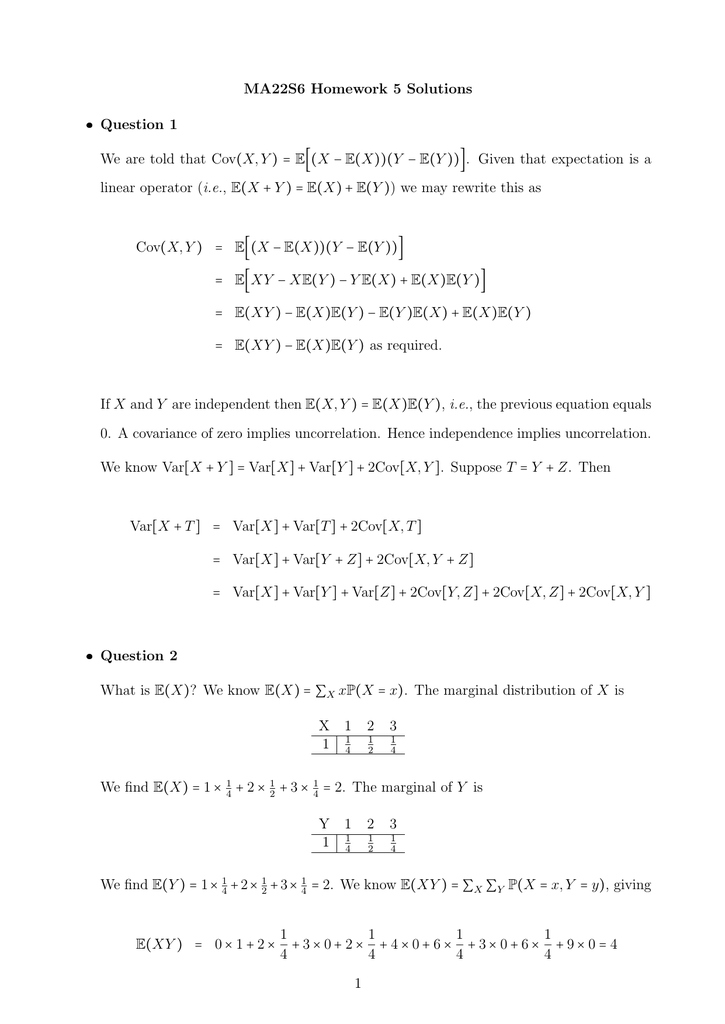



Ma22s6 Homework 5 Solutions ˆ Question 1
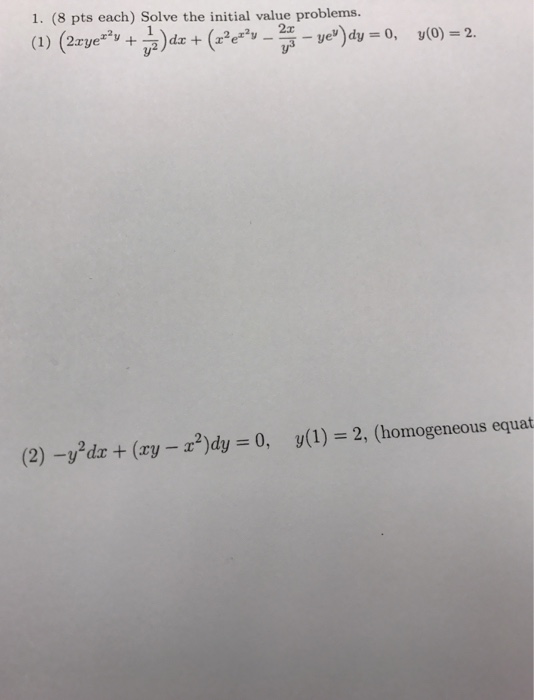



Solve The Initial Value Problems 2xye X 2y Chegg Com




Ex 9 5 10 Show Homogeneous 1 Ex Y Dx E X Y 1 X Y




The Solution Of The Differential Equation Dy Dx E X Y X 2e Y




How Accurately Can You 1 Predict Y From




Solve The Following Initial Value Problem E X Chegg Com




First Order Differential Equations Ppt Download




Y 2xy E X Dx E Xdy 0 Novocom Top
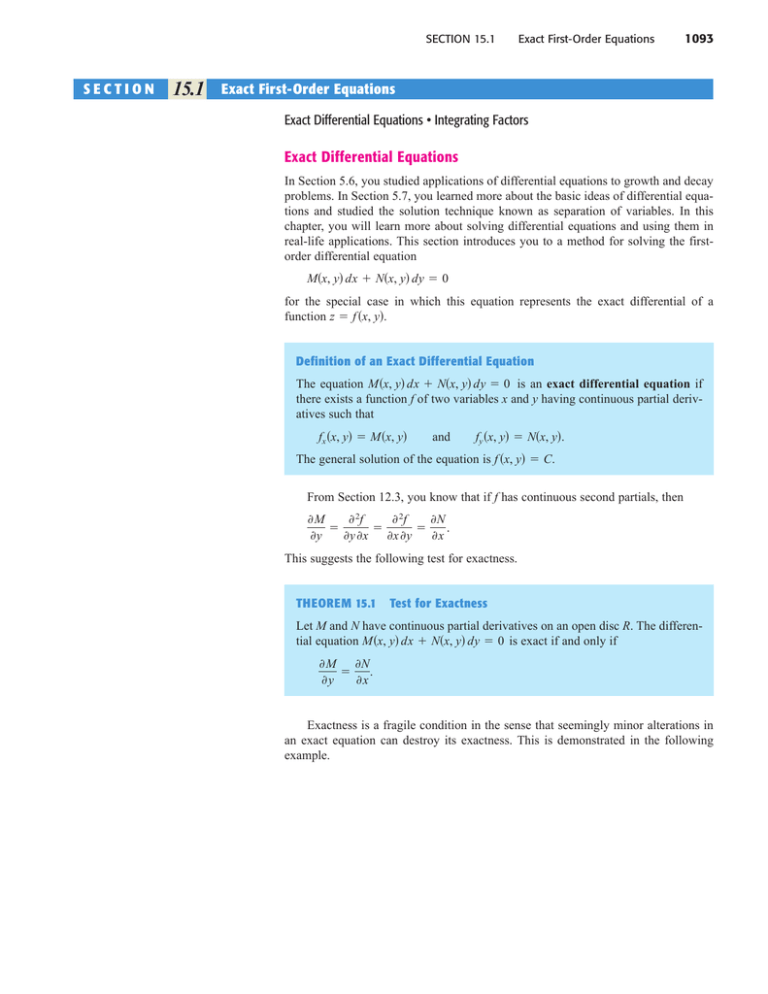



Exact Differential Equations




Misc 18 General Solution Ex Dy Y Ex 2x Dx 0 Miscellaneous
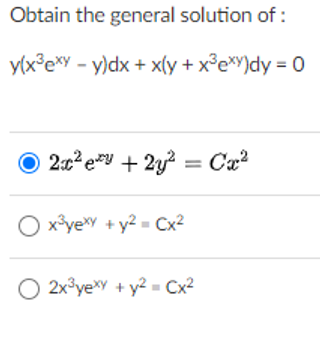



Answered Obtain The General Solution Of Bartleby




Explain Please 2 Which One Of The Following De Is Exact A X Y Dx Xy 1 Dy 0 B E Homeworklib
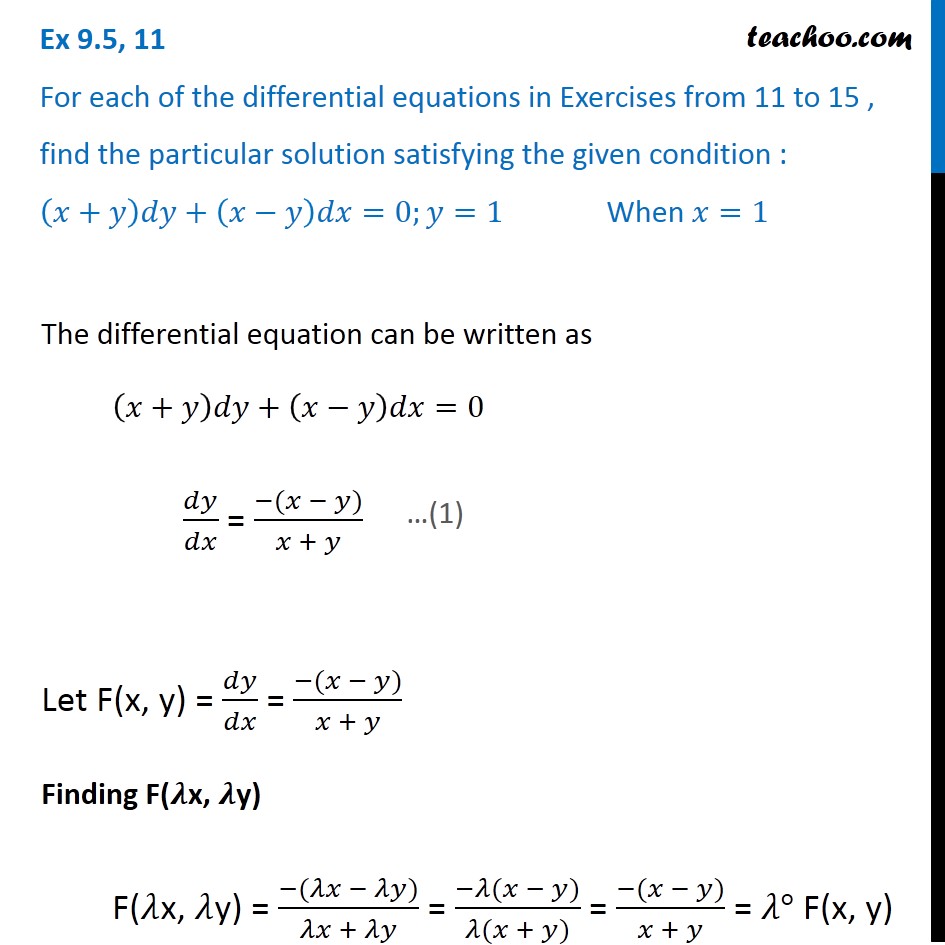



Ex 9 5 11 Find Particular Solution X Y Dy X Y Dx 0



Www Math Tamu Edu Irinaholmes M308f M308f Hw3 Sol Pdf




Differential Equations Solved Examples 17




Solve The Given Initial Value Problem E X Y Dx Chegg Com




If The Solution Of The Differential Equation X Dy Dx Y X E X B E X Y E X Phiv X C Th Youtube



Http Www Math Sci Hokudai Ac Jp S Settepanella Teachingfile Calculus Calculus2 Pagine Lineintex Pdf




Dy Dx 2xy F X Y 0 2 Novocom Top
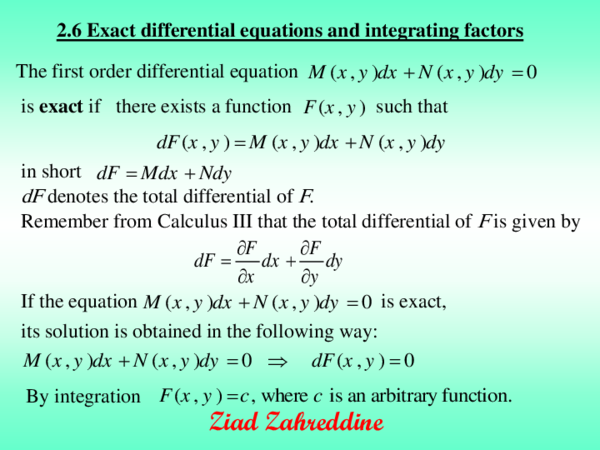



Pdf 2 6 Exact Differential Equations And Integrating Factors Mirna Mansour Academia Edu




E X Y Dy Dx E Y E 2x Y Youtube




Exact Equations Example 3 Video Khan Academy




Y 2 E Xy 2 4x 3 Dx 2xye Xy 2 3y 2 Dy 0 Brainly In



Solved Solving Exact First Oder Differential Equations 2xydx X 2 Cosy Dy 0 Y Xy 2 1 1 X 2y 2x Y Dx X 3y Dy 0 2x Y 4 Dx X 3y 12 Dy 0 Ye X S Course Hero
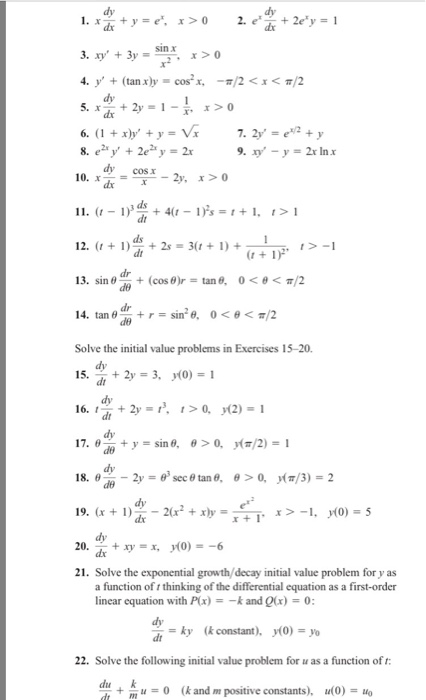



X Dy Dx Y E X X 0 E Xdy Dx 2e Xy 1 Xy Chegg Com
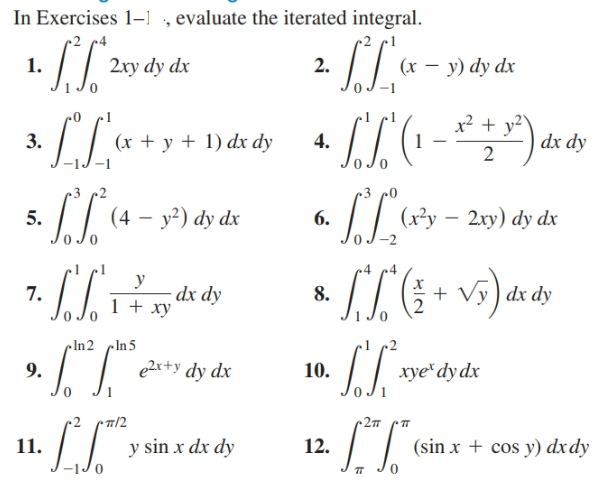



Answered In Exercises 1 1 Evaluate The Bartleby




Find Particular Solution Of Y E Y Dx Show That X Y Dy X 2y




X Y Dx Dy 0 Novocom Top
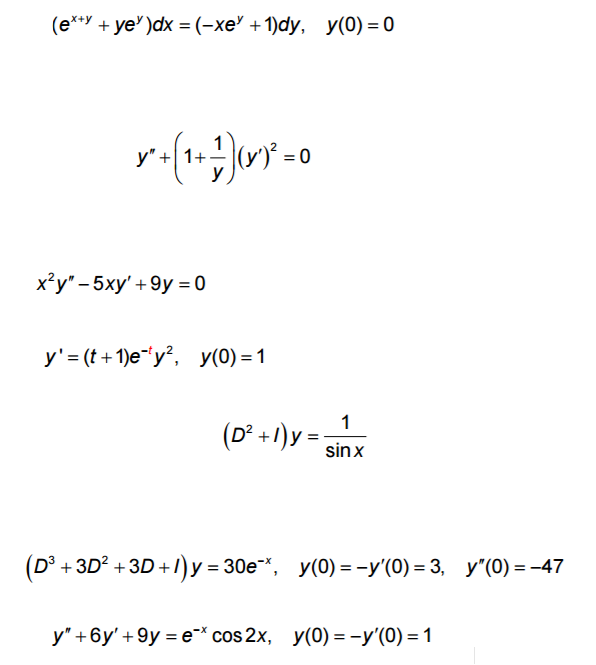



E X Y Ye Y Dx Xe Y 1 Dy Y 0 0 Y 1 Chegg Com
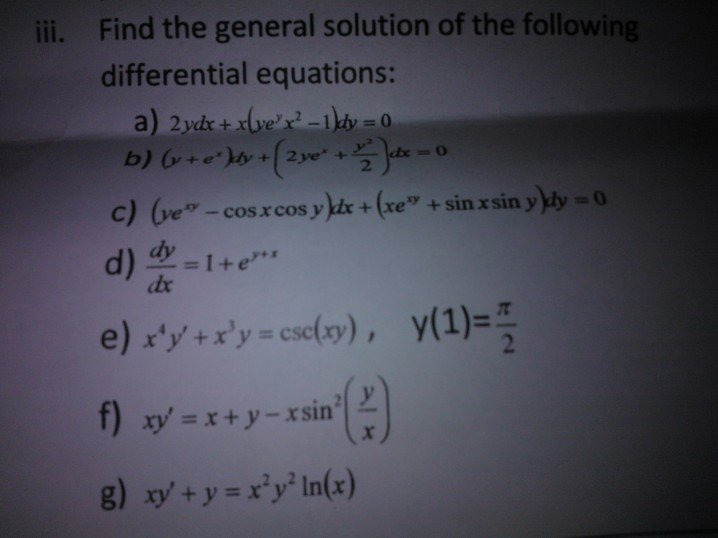



Find The General Solution Of The Following Chegg Com




Evaluate A Double Integral Over A General Region With Substitution F X Y E X Y Youtube
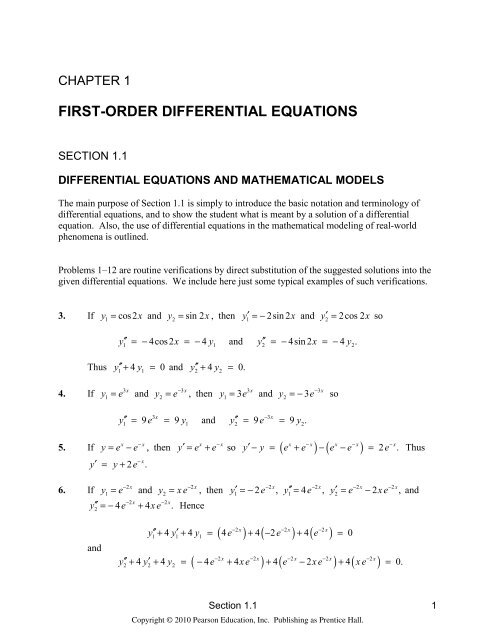



Solutions To Problems In Chapter One Mathematics




Solve The Differential Equation Ydx X Ye Y Dy 0 Maths Differential Equations Meritnation Com



How To Solve Show The Differential Equations Are Exact 2xy Y Tany Dx X 2 X Tany 2 Secy 2 2 Dy 0 Te Tx 2x Dx Dt Xe Xt 0 Quora



Www Math Tamu Edu Srlee Math308 Hw 3 Sol Pdf




The Solution Of The Differential Equation E X X 1 Dx Ye Y X
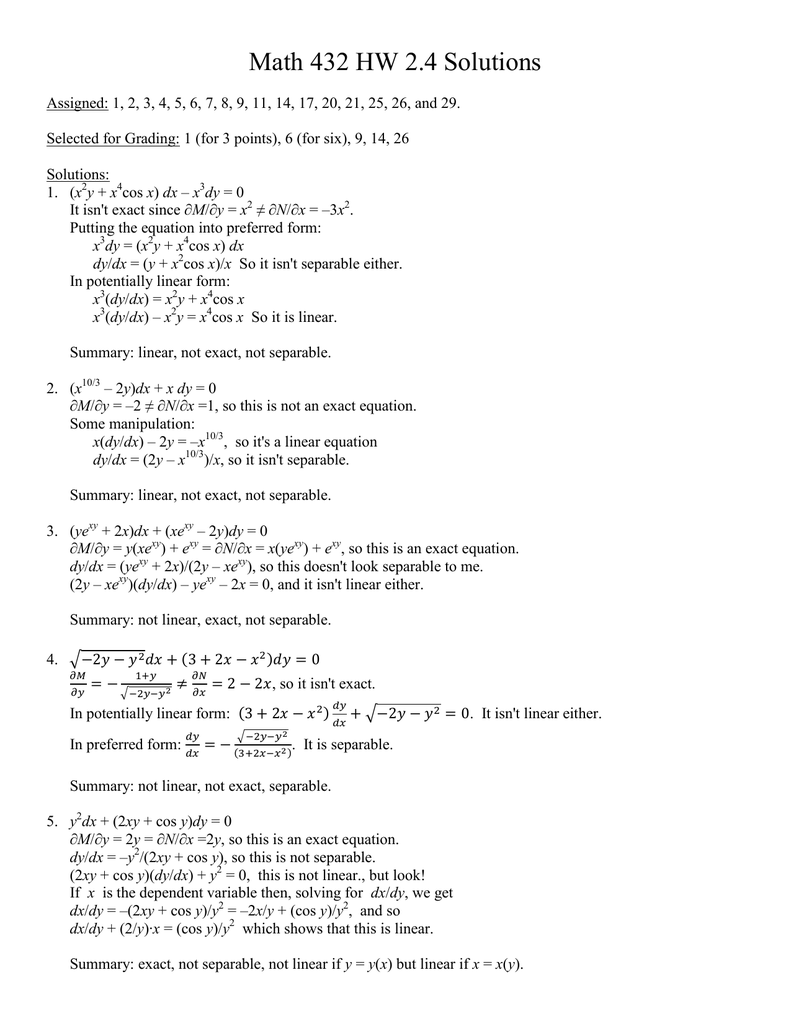



Math 432 Hw 2 4 Solutions




Solve The Differential Equation Y E X Y Dx X E X Y Y 2 Dy Y
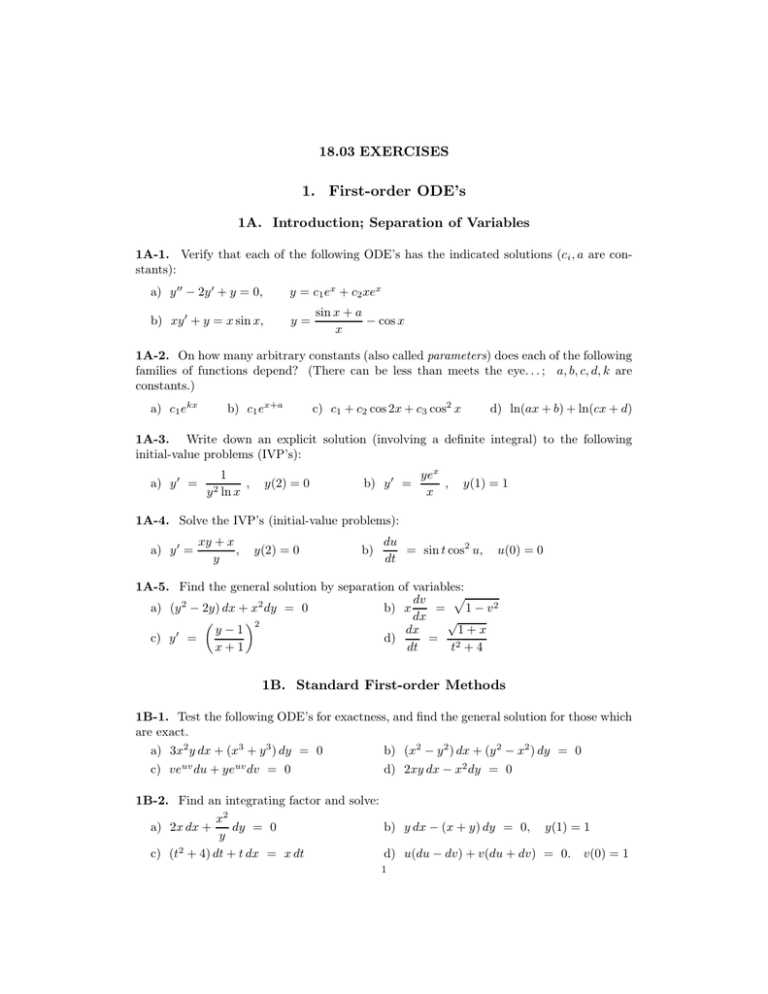



1 First Order Ode S 18 03 Exercises




Explain Please 2 Which One Of The Following De Is Exact A X Y Dx Xy 1 Dy 0 B E Homeworklib
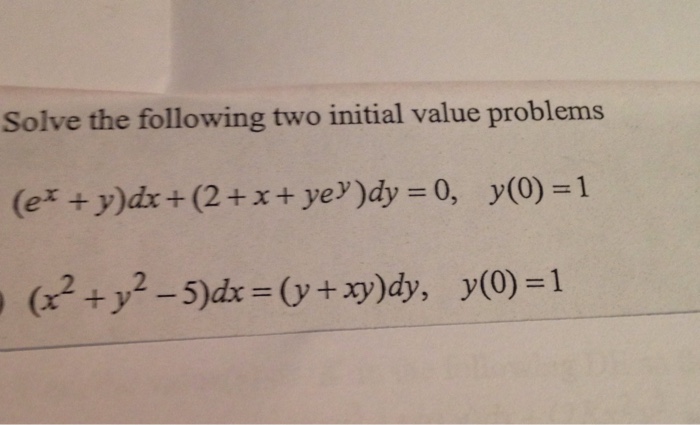



Solve The Following Two Initial Value Problems E X Chegg Com



0 件のコメント:
コメントを投稿